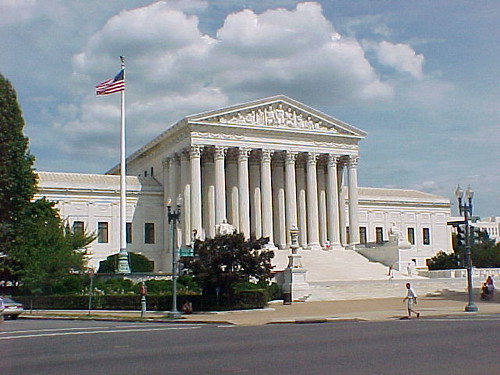High Court Allows Enforcement Amid Legal Battle
The U.S. Supreme Court granted Idaho’s request to uphold its near-total abortion restriction in medical emergencies temporarily. Simultaneously, the Court has agreed to delve into the conflict between state authorities and President Joe Biden’s administration regarding the legality of this Republican-backed legislation.
Interim Ruling Paves the Way for Showdown
Justices permitted Idaho to enact its abortion ban concerning medical emergencies, halting a federal judge’s block on the measure. The judge’s ruling was negated as it seemingly clashed with a federal law ensuring access to emergency “stabilizing care” for patients.
This legal tussle adds another layer to the ongoing debate on abortion access. Coming after the Supreme Court’s 2022 overturning of the pivotal Roe v. Wade decision, the Idaho case is set for arguments in April, with an anticipated ruling by June-end.
Biden Criticizes Supreme Court Decision
President Biden denounced the Supreme Court’s action, stating it “denies women critical emergency abortion care mandated by federal law.” He highlighted that these restrictions were compelling doctors to exit Idaho and other states due to laws hampering their patient care abilities.
The Court is set to review another significant reproductive rights case involving the Biden administration’s efforts to maintain broad access to the abortion pill mifepristone in the forthcoming months.
Idaho’s Legal Stand and Republican Opposition
Idaho officials sought a pause on U.S. District Judge B. Lynn Winmill’s injunction, arguing that the abortion restriction aligns with the state’s traditional healthcare sovereignty. The state’s attorney general and Republican lawmakers contended that the judge’s ruling infringed upon Idaho’s legislative authority over medical practices.
After Roe v. Wade was overturned, Idaho, under a “trigger” law passed in 2020, implemented the Defense of Life Act, which allows abortions solely to prevent the mother’s death.
Challenges to Abortion Exceptions
The Biden administration challenged Idaho’s law in 2022, citing discrepancies between the state and federal statutes concerning abortion exceptions. This conflict arose from differing interpretations of the 1986 Emergency Medical Treatment and Labor Act.
Winmill’s ruling barred Idaho from enforcing the law in scenarios where abortions were essential to prevent serious harm to the mother’s health.
National and Legal Ramifications
The legal battles over abortion bans aren’t confined to Idaho. Similar debates persist in Texas, where conflicting interpretations of the 1986 law and state abortion bans have led to legal standoffs.
The 5th U.S. Circuit Court of Appeals in Texas recently upheld a decision against the federal government’s abortion mandate in emergency situations, adding complexity to the ongoing legal saga surrounding reproductive rights.





